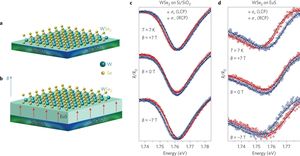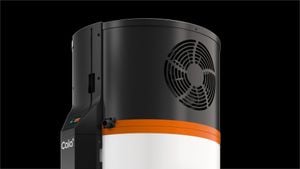Electric vehicle (EV) owners are becoming increasingly attuned to the need for efficient and respectful charging practices, especially as the number of EVs on the roads continues to grow. Recent discussions within the EV community have underscored the importance of maintaining good charging etiquette to avoid conflicts at charging stations.
One innovative solution has emerged from the Tesla owner community: leaving behind a simple, laminated note with the estimated completion time of charging and the owner's contact number on it. This idea has gained tremendous praise on platforms like the Tesla La Kopi Singapore Facebook group, with one user commenting, "This is such a great idea! Hang a note on your car to inform anyone when you expect to be done with charging. Bravo to you!" The consensus among users is clear; tools like this could drastically reduce tensions among those waiting to use chargers.
The phenomenon of 'charger hogging,' where drivers leave their EVs plugged in long after charging is complete, has ramped up frustration among EV drivers. With charging wait times climbing as the popularity of EVs surges, clear communication has become key. Many users suggest downloading apps such as PlugShare or NeedToCharge to facilitate timely notifications to others about charging durations. According to one blog post, “While it's perfectly acceptable to leave your vehicle on the charger, it’s recommended to use these apps to prevent grumbles from those waiting.”
But just how serious is the problem of overstaying at EV chargers? New practices have begun to chip away at this issue. Some charging station providers, including Tesla and ChargeFox, have implemented 'idle fees' to dissuade drivers from leaving their vehicles plugged in longer than necessary. Tesla, for example, charges $0.50 per minute for cars left plugged after their set charging parameters are fulfilled, increasing to $1 per minute when chargers are occupied. ChargeFox mirrors this approach, charging $1 per minute for any time spent at the charger beyond 10 minutes after completing the charge. Rob Asselman from ChargeFox noted the positive reception these fees have received: "I've never seen a market celebrate the introduction of a new fee like the idle charging fee.”
Meanwhile, other users within vehicle forums are grappling with the balance between fast charging and battery health. One EV owner recently queried whether relying solely on fast chargers can harm battery life. Responding to the inquiry, another user took the position against prevalent fears: "Today’s EV batteries are extremely advanced and can take consistent fast charging." They underscored the reality of modern vehicles: manufacturers design EV batteries to tolerate high use of fast chargers. Nevertheless, it is widely accepted among certain forum members, like BHPian GTO, who cautioned, "Slow charging is still the best practice for battery health. Fast charging can be expensive and might lead to faster deterioration of the battery over time."
Multiple users chimed in with their opinions on the effects of regular fast charging on EV batteries. For some, the efficiency of fast charging must come with certain sacrifices. One member likened overreliance on fast charging to frequent consumption of unhealthy foods, stating, "It is okay in the same way to eat fried chicken at every meal. You can technically do it but to the detriment of your car battery's health and performance." They recommended scheduling charging sessions when at work or shopping, tapping on the 90 percent of time cars spend parked, as this practice can save both time and battery life.
Conversations like these shed light on the broader challenge many EV users face: access to reliable charging options. Owners like those residing in older apartments face the frustration of having inadequate access to home chargers. One user made it clear how fast charging remains viable as long as drivers manage their expectations and research their local charging infrastructure: "If you can fast-charge your EV just once or twice a week, look for local establishments featuring charging options."
A growing sentiment among many EV drivers is the necessity of incentives for installations and access to home charging. Having the ability to charge overnight has been hailed as the most convenient option, with repeated mention of the cost savings associated with home charging when compared with public rapid chargers. Users encourage neighborly dialogue surrounding charging needs, proposing solutions with building maintenance or local businesses to access nightly charging solutions.
With these discussions on best practices and the rising costs associated with EV charging, it is becoming clear: etiquette matters as much as technology when it involves electric vehicles. The community needs to build mutual respect and communication around charging practices to make sure EV charging infrastructure thrives effectively as EV adoption continues its rapid advance.
All things considered, being intentional with charging practices will contribute to overall satisfaction for EV owners and efficiency at charging stations. Respectful communication among EV drivers may just be the key solution to ensuring everyone keeps their cool at the chargers.



